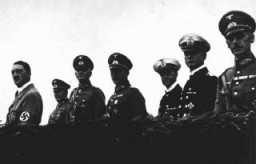You searched for: 金融游戏理财系统定制开发【TG电报:@EK7676】平台包网搭建金融游戏理财系统定制开发【TG电报:@EK7676】平台包网搭建39dbZbaSb9
<< Previous | Displaying results 601-610 of 619 for "金融游戏理财系统定制开发【TG电报:@EK7676】平台包网搭建金融游戏理财系统定制开发【TG电报:@EK7676】平台包网搭建39dbZbaSb9" | Next >>
-
Eva Miodelska
ID CardEva was the oldest of four children born to a Jewish family in the central Polish town of Lipsko, about 30 miles southeast of Radom. The family lived at #12 Casimirska Street and Eva attended a private Jewish primary school. Eva's father owned a factory that produced shoes made from leather and cork. 1933-39: In the early 1930s Eva began secondary school in Zwolen, a town about 20 miles to the north. In 1936 her father left for Argentina to settle the estate of his deceased sister. For the two years he…
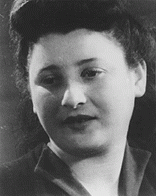
-
Peter Winternitz
ID CardPeter was the oldest of two children born to a Jewish family in the Czechoslovakian capital of Prague, a city with a Jewish community that dated back to the eleventh century. His family lived on Karlova Street in the city's Karlin district. Peter's father owned a wholesale business that sold floor coverings. 1933-39: As a boy, Peter was active in a Zionist sports organization, Maccabi Ha-Zair. The group also helped prepare youth to immigrate to Palestine [Aliyah Bet] by training them in agricultural work.…
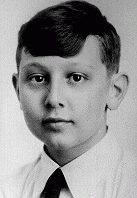
-
Machla Weiner
ID CardMachla was one of six children born to the Sandlers, a Jewish family in the Ukrainian village of Vachnovka. In 1912 Machla married Isaac Weiner, and by the late 1920s they had four sons and two daughters. Their oldest son died of scarlet fever in 1927. Hoping to find employment, Machla's husband moved the family in 1929 to the nearby city of Vinnitsa, which by then was part of the Soviet Union. 1933-39: In the early 1930s a severe famine swept the area. Machla's family survived, but times were hard. Isaac…
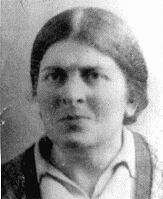
-
Jocheved Kuzda Kasher
ID CardJocheved, or Jadza as she was called at home, was born in the industrial city of Lodz, Poland's second-largest city. Before the war, one-third of Lodz's inhabitants were Jewish. The Kuzdas kept a traditional Jewish home and placed importance on their children's education. Jocheved had two older sisters, Sarah and Regina. 1933-39: Jocheved was 9 when the war broke out in September 1939. Instead of starting school, she stayed at home listening to the bombs exploding. Her father and sister tried to get to…
-
Helen Lebowitz Goldkind describes German humiliation of her grandfather in the Uzhgorod ghetto
Oral HistoryIn 1938-39, Hungary annexed the area of Czechoslovakia in which Helen lived. After Germany occupied Hungary in 1944, Helen and her family were deported to the Uzhgorod ghetto. As Jews, they were soon transferred to various camps, where much of the family perished. Although at times Helen was too weak to walk, she and her older sister survived Auschwitz, forced labor at a camp munitions factory, and Bergen-Belsen.
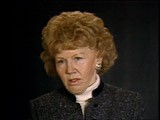
-
Hainewalde
ArticleThe SA established a protective custody camp at Hainewalde in March 1933. Well-known journalist and writer Axel Eggebrecht was among its early prisoners.
-
Glossary of Terms and Individuals in the Nazi Judicial System
ArticleLearn more about the Holocaust Encyclopedia’s key terms and individuals in the Nazi judicial system.
-
German Jews during the Holocaust
ArticleBy September 1939, over half of German Jews had emigrated. WWII would accelerate the persecution, deportation, and later, mass murder, of the remainder of Germany's Jews.
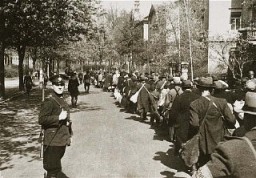
-
Romania
ArticleEven before joining the Axis alliance in 1940, Romania had a history of antisemitic persecution. Learn more about Romania before and during World War II.
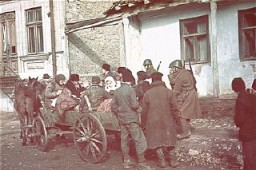
-
German Armed Forces High Command
ArticleThe German Armed Forces High Command, headed by Hitler, directed Germany’s armed forces before and during WWII. It was deeply complicit in the Holocaust and other crimes of the Third Reich.
